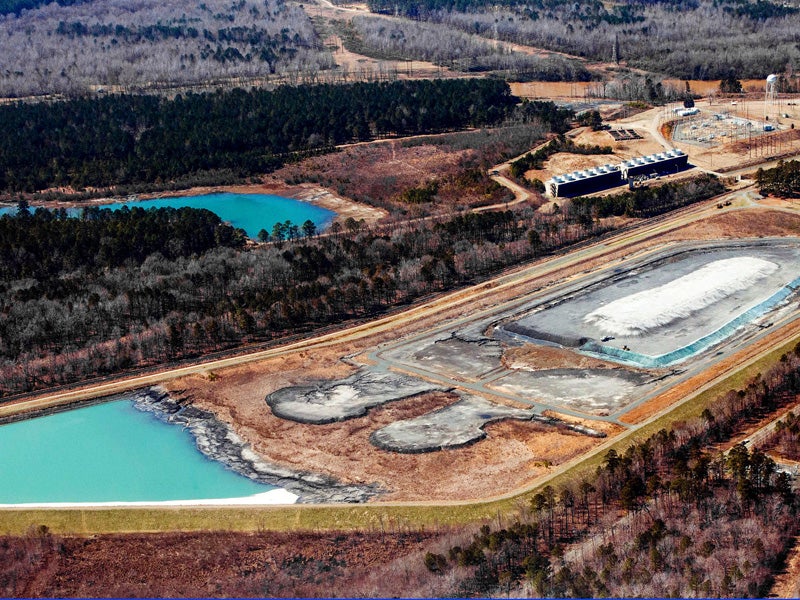Trick or Tweak? What Congress Is Really Doing to New Rules on Coal Ash
The House Energy and Commerce Committee has approved a 50-page bill that will gut the nation's first-ever federal standard for coal ash disposal.

This page was published 10 years ago. Find the latest on Earthjustice’s work.
Tweak: /twēk/ (verb) to make a minor adjustment to, to fine-tune
Trick: /trik/ (verb) deceive or outwit someone by being cunning or skillful
Rep. David McKinley (R-WV) tells everyone that his latest coal ash bill, H.R. 1734, ‘tweaks’ the new EPA public health safeguard on coal ash that was published last Friday. Apparently, the congressman has a different understanding of the word because his bill tweaks the coal ash rule like these men (pictured below) have tweaked their elbows.
This might be amusing, if not for the real harm this dangerous bill poses to the health of families and communities across our nation. The House Energy and Commerce Committee’s approval (32-19) last week of this 50-page tweak is a blatant attempt to—let me introduce a new word to Rep. McKinley’s vocabulary—”gut” the first-ever federal standards for coal ash disposal.
Gut: /guht/ (verb) to destroy or plunder
Since 2008, three major coal ash disasters have threatened lives, livelihoods and water quality in Virginia, Wisconsin, North Carolina and Tennessee, including the largest toxic waste spill in U.S. history. Communities across our country near leaking coal ash ponds and landfills can wait no longer.
Despite the urgent need to protect us from toxic coal ash, this bill seeks to protect polluters and eliminate, weaken or delay critical public health guarantees in an EPA rule that took decades to create.
If passed, the bill:
- Eliminates the EPA’s ban on dumping toxic coal ash directly in drinking water;
- Eliminates the requirement for utilities to immediately clean up toxic releases and notify the public;
- Eliminates the guarantee of public access to information about water contamination and assessments of dangerous coal ash dams;
- Delays new health and safety protections–potentially for 10 years;
- Weakens the EPA mandate to close inactive (contaminated and abandoned) ponds like the Dan River impoundment that burst last year by extending the closure deadline and allowing legacy ponds to operate without safeguards for at least 6 years;
- Delays the closure of leaking unlined ponds that contaminate water above health standards (e.g., with arsenic), allowing polluters to continue to dump into leaking ponds for an additional 8.5 years; and
- Eliminates the national standard for drinking water protection and cleanup of contaminated sites.
Trick or Tweak? Most definitely, trick.
As this dangerous bill moves to a vote in the full House, it is essential our lawmakers understand its true intent–the gutting of the first-ever federal standards to protect our families and communities from toxic coal ash, not a tweak as Rep. McKinley would trick you into believing.
This article was first posted on The Huffington Post on April 24, 2015.
Earthjustice’s Clean Energy Program uses the power of the law and the strength of partnership to accelerate the transition to 100% clean energy.